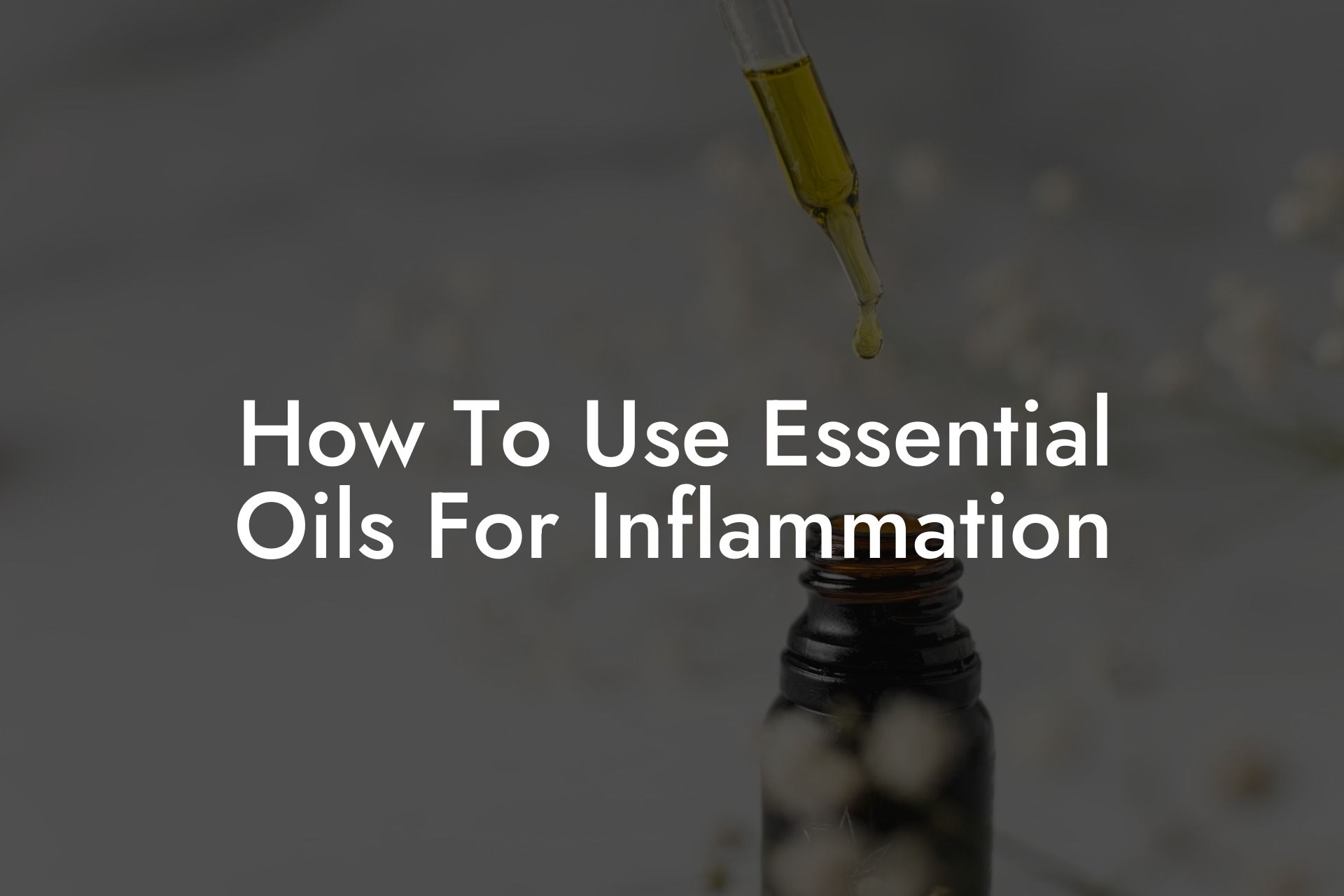Inflammation is your body’s natural response to injury or infection, but living with chronic inflammation can be painful and uncomfortable. Luckily, nature has provided us with a variety of essential oils that can help reduce inflammation and provide relief. In this guide, we will explore how to use essential oils for inflammation, their benefits, and how to incorporate them into your daily routine.
Table of Contents
Why Use Essential Oils for Inflammation?
Essential oils are highly concentrated plant extracts with numerous therapeutic properties. For inflammation, they can be particularly effective due to their anti-inflammatory and analgesic properties. These oils can help to reduce swelling, decrease pain, and speed up the healing process by promoting blood circulation.
Some essential oils also possess antioxidant properties, which can help reduce oxidative stress, a common cause of inflammation. By using these oils, you can support your body’s natural healing processes and help to mitigate the discomfort caused by inflammation.
5 Top Essential Oils for Inflammation
Each essential oil has unique properties, but some oils are particularly beneficial for reducing inflammation. Let’s take a look at five of the best essential oils to support your body’s anti-inflammatory response:
1. Lavender
Lavender essential oil is prized for its soothing and anti-inflammatory effects. Its antimicrobial properties can help to prevent infections, while its calming scent can promote relaxation and reduce stress, a known contributor to inflammation.
2. Rosemary
Rosemary essential oil is rich in antioxidants, which can help to combat inflammation. Additionally, its analgesic properties are effective in relieving pain and discomfort, making it a great choice to soothe sore muscles and joints.
3. Eucalyptus
Eucalyptus essential oil has anti-inflammatory and analgesic properties that make it effective for reducing inflammation. Its cooling sensation can provide relief from discomfort, while also helping to increase blood flow and facilitate healing.
4. Frankincense
Frankincense essential oil possesses strong anti-inflammatory properties, making it ideal for soothing inflamed skin, joints, and muscles. Its calming aroma can also help to alleviate stress and anxiety, further reducing inflammation in the body.
5. Peppermint
Peppermint essential oil has a cooling effect on the skin, making it a popular choice for relieving inflammation and its accompanying pain. Its menthol content additionally promotes blood flow, which can aid in the healing process.
How to Use Essential Oils for Inflammation
Using essential oils for inflammation may offer relief through various application methods. Some popular ways to incorporate these oils into your daily routine include:
– Topical application: Dilute essential oils with a carrier oil, such as coconut or almond oil, and apply to the affected area. Make sure to follow the recommended dilution ratio based on individual oil potency and sensitivity.
– Aromatherapy: Inhale the soothing scents of essential oils through an electronic diffuser, steam, or by adding a few drops to a warm bath. This promotes relaxation and allows the oil’s properties to be absorbed through the respiratory system.
– Massage: Mix essential oils with a carrier oil and massage onto the inflamed area to increase blood flow and support healing.
How To Use Essential Oils For Inflammation Example:
Combining several anti-inflammatory essential oils can create a powerful blend to help soothe inflammation. Here’s a simple recipe for a homemade anti-inflammatory massage oil:
– 10 drops of lavender essential oil
– 10 drops of eucalyptus essential oil
– 5 drops of frankincense essential oil
– 5 drops of peppermint essential oil
– 2 oz of carrier oil (such as almond or coconut oil)
Mix the essential oils and carrier oil in a dark glass container, then massage the mixture onto the inflamed area as needed.
Now that you understand how to use essential oils for inflammation, you can begin to take a more natural approach to managing your discomfort and promoting overall well-being. We encourage you to experiment with different oils and combinations to find the perfect blend for your unique needs. Don’t forget to share this informative guide with friends and family seeking natural relief from inflammation, after all, the power of essential oils is best enjoyed when shared! Be sure to explore other helpful guides on the Oshu Oils blog and check out our range of artisan essential oils to support your wellness journey.





















